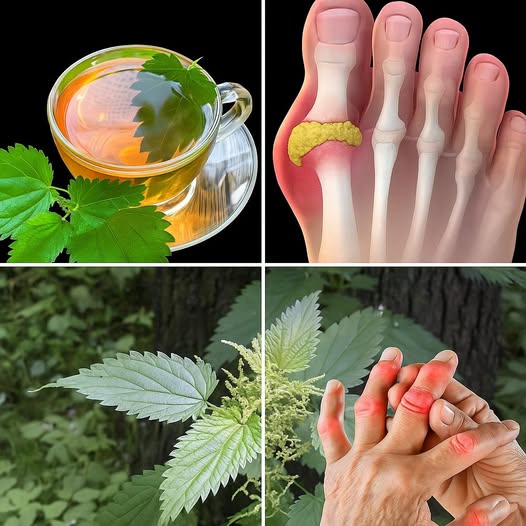Health Benefits of Urtica dioica (Stinging Nettle)
Urtica dioica, widely known as stinging nettle, is a medicinal plant that has been used for centuries in traditional herbal medicine. It is rich in vitamins (A, C, K, and several B vitamins), minerals (iron, calcium, magnesium, potassium), and bioactive compounds that offer a wide range of health benefits.

🌿 1. Anti-inflammatory Properties
One of the most well-known uses of stinging nettle is its ability to reduce inflammation, particularly in arthritis and joint disorders:
- Stinging nettle contains polyphenols, flavonoids, and lignans, which help block inflammatory pathways.
- It inhibits pro-inflammatory cytokines like TNF-α (tumor necrosis factor-alpha) and IL-6 (interleukin-6).
- Clinical studies have shown that both topical and oral preparations of nettle may help reduce pain, stiffness, and swelling in patients with osteoarthritis and rheumatoid arthritis.
- Some patients are able to reduce their NSAID (non-steroidal anti-inflammatory drug) use when supplementing with nettle under medical supervision.
✅ How it helps:
- Relieves joint discomfort
- Improves flexibility and movement
- Reduces need for pain medication
🍃 2. Natural Diuretic – Reduces Swelling
Stinging nettle has mild diuretic effects, meaning it promotes urine production. This helps reduce water retention and swelling in inflamed joints, especially in cases of gout or arthritis.
🩸 3. Supports Detoxification
Stinging nettle stimulates the lymphatic system and kidneys, aiding in the removal of metabolic waste products that can accumulate and contribute to inflammation in the joints.
🦴 4. Rich in Bone-Supporting Nutrients
Nettle is a good source of:
- Calcium and magnesium – essential for bone strength
- Silica and boron – trace minerals involved in bone regeneration
- Vitamin K – supports bone metabolism and calcium regulation
These nutrients are helpful for individuals dealing with joint degeneration and age-related bone issues.
🌿 5. Immune-Modulating Effects (for Autoimmune Joint Disorders)
Conditions like rheumatoid arthritis (RA) are autoimmune in nature. Urtica dioica has been shown to:
- Modulate immune responses
- Reduce autoimmune overactivity
- Potentially ease symptoms in conditions such as RA or lupus-related joint pain
⚕️ Other Health Benefits:
- Allergy relief: Acts as a natural antihistamine
- Supports urinary tract health
- Improves skin conditions like eczema and acne
- May help regulate blood sugar and blood pressure
🧪 Forms and Usage:
- Tea or infusion (dried leaves)
- Capsules or tablets
- Tinctures or liquid extracts
- Topical creams or poultices for direct joint application
⚠️ Precautions:
- May interact with medications for blood pressure, diabetes, or blood thinners
- Avoid during pregnancy unless approved by a healthcare professional
- Always consult a doctor before long-term use, especially for chronic conditions
Urtica dioica is a powerful herbal ally in managing joint pain, inflammation, and arthritis. Its anti-inflammatory, detoxifying, and immune-supporting properties make it a valuable natural treatment — but should always be used wisely and, ideally, under medical guidance.